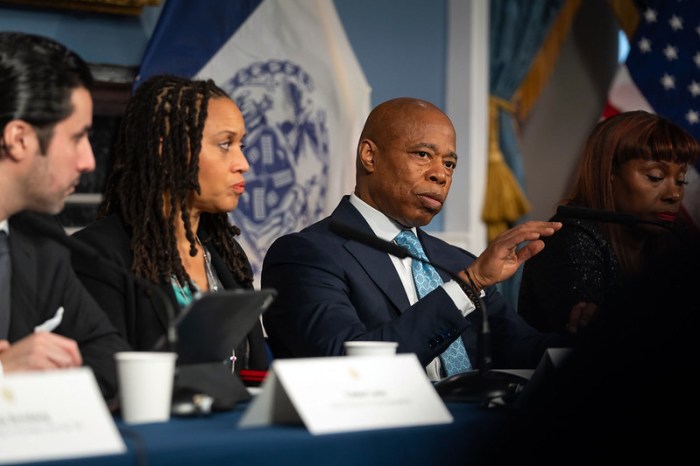
This is a pivotal moment for the Common Core State Standards.
Although 45 states quickly adopted the higher standards created by governors and state education officials, the effort has begun to lose momentum. Some are now wavering in the face of misinformation campaigns from people who misrepresent the initiative as a federal program and from those who support the status quo. Legislation has been introduced in at least 12 states to prohibit implementation and states have dropped out of the two major Common Core assessment consortia. Opposition voices are growing louder as new assessments show students aren’t performing as well as they had on easier state tests offered previously.
The debate about the standards must be changed to ensure politics and mythology don’t derail a vital effort to improve opportunities for our kids as they are falling further behind their international peers.
Too often, supporters of raising expectations for our students are refuting broad claims that have nothing do with why we brought together teachers, education experts and employers to develop the Common Core initiative.
Instead, we must emphasize the real impact of this initiative in our classrooms.
Contrary to claims by opponents who say we’re taking away local control of curriculum, how educators teach the standards is entirely up to them. We have clear illustrations of teachers and administrators across the country developing innovative ways to help their students meet the new benchmarks.
In Delaware, elementary instructors have come together to teach basic physics concepts such as force and motion. They developed a creative hands-on lesson in which the students build and refine toy sail cars. As one teacher in the program said, the hands-on practice students “are getting now is teaching them way better than any worksheet or textbook.”
In a Michigan elementary school, the shift to the new standards led educators to develop methods for teaching concepts at greater depth and in ways that allow students to apply those concepts to many scenarios, rather than through memorization. A second-grade math class is now using “bar models,” a technique that has proved effective in some of the highest-performing schools in the world. The district’s math specialist says they’ve “seen a lot of positive feedback from teachers because they’re able to take their students a lot further this year.”
And English teachers at South Middle School in Grand Forks, North Dakota, are aligning lessons with Common Core by incorporating a discussion model that leads to a deeper understanding of texts. For example, they ask students to think critically about the values of a narrator, asking questions such as: “What evidence is there in this excerpt that [the narrator] doesn’t care about what she did?”
All of these efforts represent precisely what we hoped Common Core would encourage when we worked with our colleagues at the National Governors Association and the Council of Chief State School Officers to create the program. They are the reason that unlikely coalitions of Democrats and Republicans, as well as business leaders and union presidents, are urging states to resist political pressures and stay focused on implementing the standards.
According to Gallup’s World Poll, there are 3 billion people looking for work and only 1.2 billion potential jobs available. The jobs will go where the skilled workforce is, and we are in danger of falling behind if we don’t raise the bar for our students.
The most recent Program for International Student Assessment shows that even once-struggling nations, such as Estonia, Poland and Vietnam, are surpassing the U.S. This has serious consequences for individual economic opportunity and national economic growth.
In the coming months, elected officials and the Bipartisan Policy Center’s Governors’ Council will team up to publicize the facts about Common Core and challenge misinformation about what the standards mean.
We will help fill the leadership vacuum that has existed among even Common Core’s strongest proponents by providing states with materials to inform the public and assistance in applying best practices. We will share models of how states can successfully teach the standards — such as ways to bring together the best teachers across districts to share strategies, curriculum and lesson plans.
And we will help advocates find the most effective ways to communicate about the Common Core — such as the back-to-school nights held in Delaware, where community leaders were shown Common Core lessons. Those leaders saw that, in practice, the standards set goals that make sense to parents and teachers, including ensuring fourth-graders can multiply large numbers and write an essay.
If we put the focus on the great work being done to implement Common Core in classrooms across the U.S., instead of debating abstract political rhetoric, we will give our students the opportunities they deserve.
Governor Jack Markell of Delaware, a Democrat, and former Governor Sonny Perdue of Georgia, a Republican, were co-chairmen of the Common Core State Standards Initiative.

















